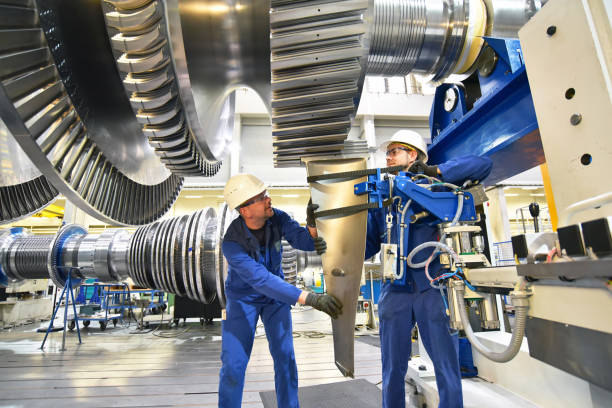Mechanical engineering, one of the oldest and broadest branches of engineering, is a field that combines creativity, knowledge, and analytical tools to complete the difficult task of shaping an idea into reality. It is the backbone of modern technology, driving advancements in a diverse range of industries from automotive to aerospace and energy to robotics. This article delves into the multifaceted world of mechanical engineering, exploring its history, core principles, areas of specialization, and the future prospects of this dynamic field.

A Brief History of Mechanical Engineering
The roots of mechanical engineering can be traced back to ancient civilizations where humans began to invent basic tools and devices. The wheel, lever, and pulley are examples of early mechanical inventions that laid the groundwork for future developments. The industrial revolution in the 18th century marked a significant turning point, with the advent of steam engines and machinery transforming industries and society. Notable figures such as James Watt and George Stephenson made groundbreaking contributions that solidified mechanical engineering as a profession.
Core Principles of Mechanical Engineering
At its core, mechanical engineering is grounded in several fundamental principles:
- Statics and Dynamics: Understanding how forces affect static and moving bodies is essential. Statics involves analyzing systems in equilibrium, while dynamics focuses on systems in motion.
- Thermodynamics: This principle deals with heat transfer and energy conversion, which is crucial in designing engines, HVAC systems, and power plants.
- Materials Science: Selecting the right materials based on properties like strength, ductility, and heat resistance is vital for creating durable and efficient mechanical systems.
- Fluid Mechanics: The study of fluids and their behavior is critical for designing systems like pumps, turbines, and HVAC systems.
- Mechanics of Materials: Understanding how materials deform under various forces helps engineers design structures and machines that can withstand stress and strain.
- Control Systems: Implementing automation and control systems in machinery ensures precision and efficiency in processes.
Areas of Specialization
Mechanical engineering is a vast field with numerous areas of specialization, allowing engineers to focus on their interests and career goals:
- Automotive Engineering: This specialization involves the design and development of vehicles, focusing on improving performance, safety, and fuel efficiency.
- Aerospace Engineering: Engineers in this field work on aircraft and spacecraft, addressing challenges related to aerodynamics, propulsion, and materials.
- Robotics and Automation: This rapidly growing area involves designing robots and automated systems for manufacturing, healthcare, and other applications.
- Energy Systems: Engineers specializing in energy systems work on renewable energy sources, energy efficiency, and sustainable power generation.
- Biomechanical Engineering: This interdisciplinary field applies mechanical engineering principles to the human body, developing medical devices and prosthetics.
- Manufacturing Engineering: Focusing on production processes, this specialization aims to improve efficiency and quality in manufacturing operations.
The Role of Technology in Mechanical Engineering
Advancements in technology have significantly impacted mechanical engineering, introducing new tools and methodologies that enhance the field’s capabilities:
- Computer-Aided Design (CAD): CAD software allows engineers to create detailed 3D models and simulations, improving design accuracy and reducing development time.
- Finite Element Analysis (FEA): FEA is used to simulate how a product reacts to real-world forces, vibration, heat, and other physical effects, ensuring reliability and performance.
- 3D Printing: Additive manufacturing enables rapid prototyping and the production of complex components, offering new possibilities in design and manufacturing.
- Internet of Things (IoT): IoT technology allows for the creation of smart systems that can monitor and control mechanical processes remotely.
- Artificial Intelligence (AI): AI is being integrated into mechanical systems to optimize performance, predict maintenance needs, and enhance decision-making.
Future Prospects of Mechanical Engineering
The future of mechanical engineering is promising, with emerging trends and technologies shaping the landscape:
- Sustainable Engineering: As environmental concerns grow, mechanical engineers are focusing on developing sustainable solutions, such as energy-efficient systems and eco-friendly materials.
- Advanced Materials: The development of new materials with enhanced properties, such as carbon nanotubes and graphene, is opening new avenues for innovation.
- Nanotechnology: This field offers potential breakthroughs in materials and devices, impacting areas like medicine, electronics, and energy storage.
- Collaborative Robotics: Also known as cobots, these robots are designed to work alongside humans, enhancing productivity and safety in various industries.
- Space Exploration: As interest in space exploration intensifies, mechanical engineers will play a crucial role in designing spacecraft and supporting systems.
Challenges and Opportunities
Despite its many advancements, mechanical engineering faces several challenges, including the need to meet increasing demand for sustainable practices, addressing the skills gap in emerging technologies, and navigating the complexities of globalization. However, these challenges also present opportunities for innovation and growth, as engineers are called upon to develop creative solutions to some of the world’s most pressing issues.
Conclusion
Mechanical engineering is a dynamic and ever-evolving field that plays a pivotal role in shaping the world around us. From designing the latest automotive technologies to developing renewable energy solutions and advancing space exploration, mechanical engineers are at the forefront of innovation. As technology continues to advance, the field will undoubtedly face new challenges and opportunities, but its core principles and dedication to improving the human experience will remain steadfast. Whether you are a student considering a career in mechanical engineering or a professional seeking to expand your knowledge, the field offers endless possibilities for those with a passion for problem-solving and a vision for the future.

